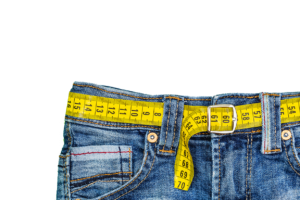
The weight loss industry rakes in billions of dollars every year as millions of adults in the U.S. attempt, or in many cases reattempt, to lose weight. Only 20% of people who achieve the gold standard goal of 10% weight loss will go on to maintain it. With so much money, time, and effort being spent on achieving weight loss you would think that we’d spend an equal amount of time and effort on maintaining that weight loss, but that just isn’t the case.
Yo-yo dieting or weight cycling leads to metabolic dysregulation and increases risk for cardiovascular disease. That means losing weight is not the solution to health problems unless the weight loss is maintained. When working with patients who have chronic kidney disease (CKD) or end-stage renal disease (ESRD) who already have metabolic dysregulation and a large portion have existing cardiovascular disease, failed weight loss maintenance can further increase their disease burden.
To better support patients with their nutrition, weight loss and weight maintenance goals, the following tips and insights may come in handy.
Normalize Weight Loss Challenges
- Human bodies are resistant to weight loss even if they are overweight or obese.
- Rapid weight loss can be enticing, and many popular diets today promise quick results however, rapid weight loss is also associated with increased likelihood of weight regain.
- During and after weight loss, hunger signals increase, and satiety signals decrease which can drive weight regain.
- The changes in hunger and satiety signals can last for a year or more
- Stress may slow progress. High levels of physical and emotional stress send signals to the body that ultimately prevent weight loss and can hinder progress.
Plan Ahead and Set Expectations
- Weight loss at a rate of 1-2lb per week is considered healthy, it allows the body more time to adjust and may reduce the severity of hunger and satiety changes.
- Filling the diet with low calorie, nutrient dense foods like vegetables, fruits, and legumes can help induce satiety without drastically increasing calories.
- Alleviating stress through improved sleep, exercise, therapy, and/or meditation can encourage the body into a state that supports weight loss.
- As weight comes down, activity level should increase. Successful weight loss maintenance requires some form of daily exercise and activity.
- Maintaining weight loss also means a lifetime commitment to dietary changes, which means selecting a sustainable nutrition approach is crucial.
Avoid Malnutrition
- Very strict diets may lead to micronutrient deficiencies as well as low blood sugar or protein-energy malnutrition depending on the type of diet.
- Don’t overlook hidden malnutrition, when someone is obese or overweight, they may not be taking in adequate protein even when their diet supports maintaining a high weight.
- If you suspect your patient may be experiencing protein-energy malnutrition, utilizing the 7-Point Subjective Global Assessment or Malnutrition Inflammation Score can help you identify how severe the problem is.
- Malnutrition is common in ESRD/CKD patients, especially if they’re on a weight loss challenge. IDPN or IPN Nutrition Therapy can be personalized to patients’ specific needs providing the patient with more protein and helping avoid malnutrition throughout their weight loss process.
Weight loss is a journey that does not end when the goal weight is met, it requires a lifelong commitment to new habits. Patients attempting to lose weight need guidance, sympathy, and accountability to be successful, and dietitians are in an excellent position to provide the necessary level of care.
To learn more about weight loss, malnutrition, and fad diets check out our Clinician Portal where you’ll also find access to the 7-ptSGA and MIS forms, as well as more information on IDPN and IPN managing protein energy wasting, and our new Fad Diet handout.
